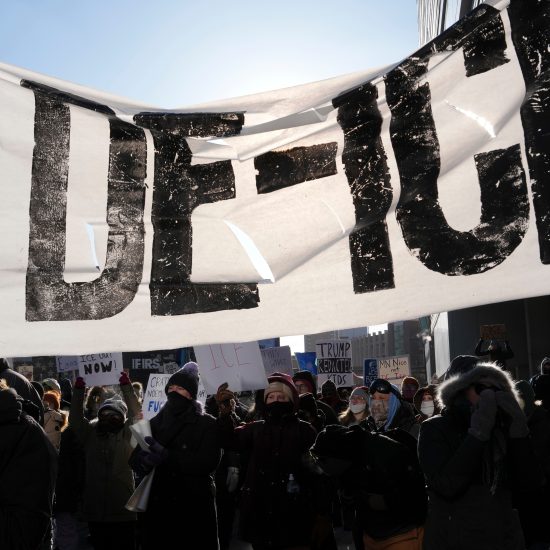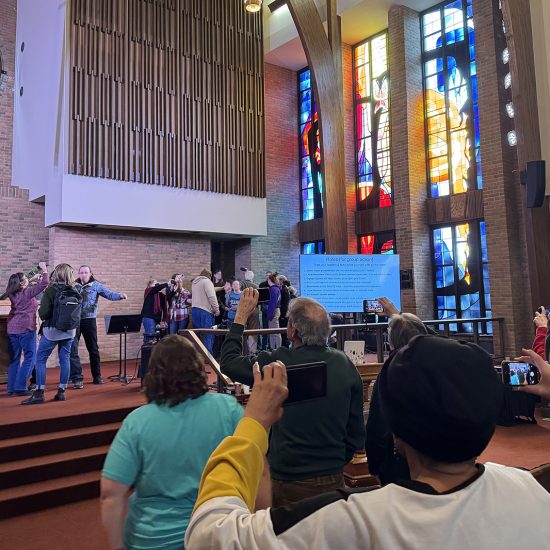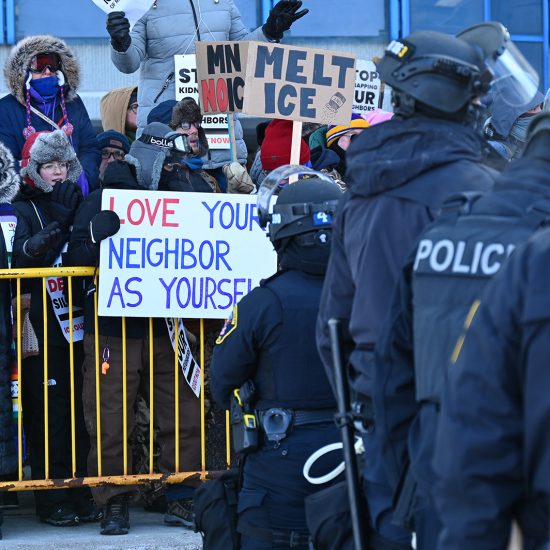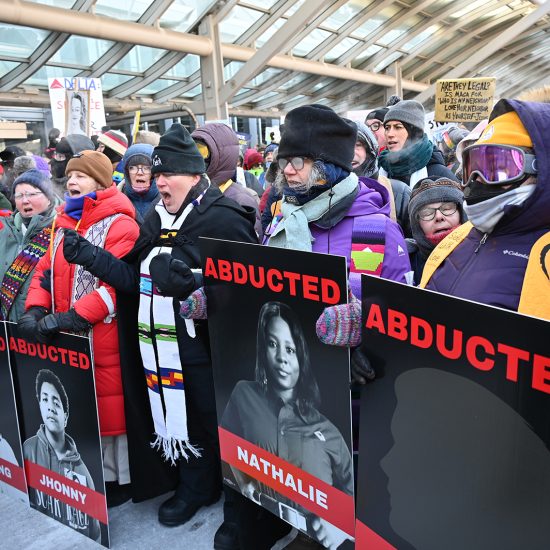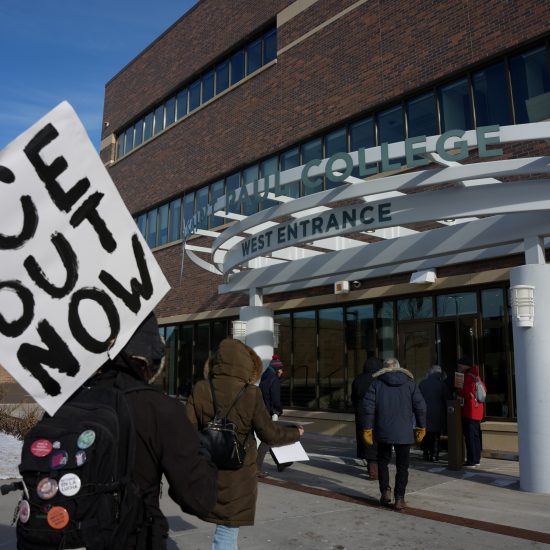
WASHINGTON (RNS) — An executive order signed by President Donald Trump on his first day in office appears to keep all but a few refugees from entering the country, saying that the United States lacks the resources to absorb them.
The measure, titled “Realigning the United States Refugee Admissions Program,” was among a blitz of executive orders Trump signed in the hours after he was inaugurated.

Refugees fleeing war in Ukraine arrive at Przemysl, Poland, on Feb. 26, 2022. (Petr David Josek/Associated Press)
“The United States lacks the ability to absorb large numbers of migrants, and in particular, refugees, into its communities in a manner that does not compromise the availability of resources for Americans, that protects their safety and security, and that ensures the appropriate assimilation of refugees,” the order reads in part. “This order suspends the USRAP until such time as the further entry into the United States of refugees aligns with the interests of the United States.”
The order still allows for some refugees to be admitted, but only “case-by-case” exceptions that require sign-off by the secretary of state and the secretary of homeland security.
The number of refugees allowed into the U.S. is set by the president in consultation with Congress and varies from year to year, usually based on world events. By the end of Trump’s first term, that number reached 18,000, down from a historic average of about 95,000 a year. The Biden White House had set the number at 125,000 for 2025.
The reduced numbers during the first Trump administration gutted the nonprofit agencies that contract with the government to resettle refugees in the U.S., six of which are sponsored by religious denominations or are run by religious groups.
The leaders of these faith-based agencies were quick to condemn Trump’s new executive order and rejected its claims, saying that USRAP, created under the Refugee Act of 1980, partly in response to the refugee crisis after the Vietnam War, is designed to address the concerns the executive order raises.
“Refugees undergo rigorous vetting, including multiple background checks by national security agencies, before ever setting foot on American soil,” said Krish O’Mara Vignarajah, head of the Lutheran group Global Refuge, in a statement. “Their integration is coordinated through close collaboration between federal agencies, local stakeholders, and nonprofit organizations, including many faith-based groups, positioning them to quickly become vital contributors to their new communities.”
Vignarajah said the refugee program is about “living up to our nation’s humanitarian values,” adding, “This mission has never been about politics; it’s about people.”
Matthew Soerens, vice president of advocacy and policy at World Relief, an evangelical Christian group, said the order runs counter to the values of Christians who voted for Trump since 2016. “They did so heartened by pledges that he would secure our borders and protect Christians from persecution, but most did not anticipate that he would halt a long-standing, legal immigration program that offers refuge to those persecuted for their Christian faith. We hope and pray he will reconsider.”
Refugee status is offered to people “who have been persecuted or fear they will be persecuted on account of race, religion, nationality, and/or membership in a particular social group or political opinion,” according to the U.S. Citizenship and Immigration Services, and “who are of special humanitarian concern to the United States.”
Many of the immigrants who arrive at the U.S.-Mexico border are asylum-seekers, not refugees, though to be granted asylum they must meet the same qualifications of distress at home. Citizens of some 17 other countries deemed unsafe due to war, natural disasters or other conditions can be awarded temporary protected status. Most of the Haitian migrants living in Springfield, Ohio, whom Trump and his now-Vice President JD Vance accused of stealing and eating pets during the 2024 presidential campaign, were admitted under TPS.
The distinctions among the different categories of migrant were raised by Mark Hetfield, head of HIAS, a Jewish resettlement agency, who said in a statement that he was “appalled by the callousness that this administration is taking toward victims of violence and persecution” and who also posted his frustration on the social media platform Bluesky. “Trump in Oval Office: ‘I’m fine with legal immigration.’ But refugee resettlement — which he just suspended — IS LEGAL IMMIGRATION.”
In a statement on Tuesday, the Most Rev. Sean Rowe, the Presiding Bishop of the Episcopal Church, and Julia Ayala Harris, President of the denomination’s the House of Deputies, released a statement expressing frustration with Trump’s various actions on immigration, and noted Episcopal Migration Ministries is among the groups tasked with helping resettle refugees.
“Our true citizenship is not here on earth but in heaven,” the prelates argued, adding, “this vision of God’s kingdom, this new reality, is the one to which we Christians are pledged in our baptism above any political preference or policy, and to which our church must bear witness through word and deed.”
“This sacred call shapes both our churchwide commitment to stand with migrants and the ministries of congregations across our church who serve vulnerable immigrants and refugees in their communities.”

